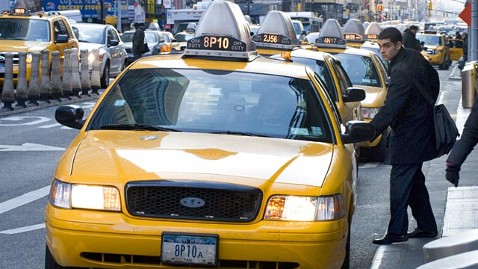New York May Let People Hail Cabs With Smartphones

(Don Emmert/AFP/Getty Images)
New York City cab-snatching victims may soon be able to rest easy.
The Taxi and Limousine Commission (TLC) is accepting proposals from mobile application companies that would allow taxi riders to book, track and pay for a cab using their smartphones.
Software development companies with established mobile taxi applications already in use in cities around the U.S. and abroad are vying to be considered to be the face of digital hailing in Manhattan.
Among them is Taxi Magic, which has already established itself in "45 cities, working with 85 fleets, and connected to over 30,000 taxi cabs," according to Matt Carrington, the company's director of marketing.
Taxi Magic's technology "works best when it's seamless, meaning when the cab pulls right up and you get in," said Carrington.
That may raise concerns in a frenzied environment like New York City, where drivers may be unwilling to take a passenger to a particular location, or decide to pick up other passengers en route instead of the requested rider.
But Carrington said Taxi Magic's technology is capable of fulfilling the needs of the city's cab-riding citizens.
"Ours is one of the few companies that does deep integration with the hardware a cabby has with his meter," said Carrington.
Through Taxi Magic's app, a message would flash across the driver's mobile data terminal to inform them of the rider's preference for pick-up location.
Another company looking to operate in New York is London-based Hailo, which under CEO Jay Bregman has already set up an office in New York in order to understand the market the company hopes to enter.
"This [solicitation to mobile companies] is a huge signal that the city is ready for this type of technology," Bregman said. "But at the same time, you have to select a single supplier. That may not be the best way of accomplishing the objectives to provide a service to the city of New York."
Bregman said Hailo was able to thrive in London, where multiple companies operate. Hailo has proposed that the TLC pick more than one mobile application to foster competition and innovation.
"We don't think exclusivity benefits really anyone in the long run. The companies selected, by definition, don't innovate as quickly," he said. "The technology is changing so fast. Unless you have a constantly open marketplace, you can't guarantee that what is good today will be good tomorrow."